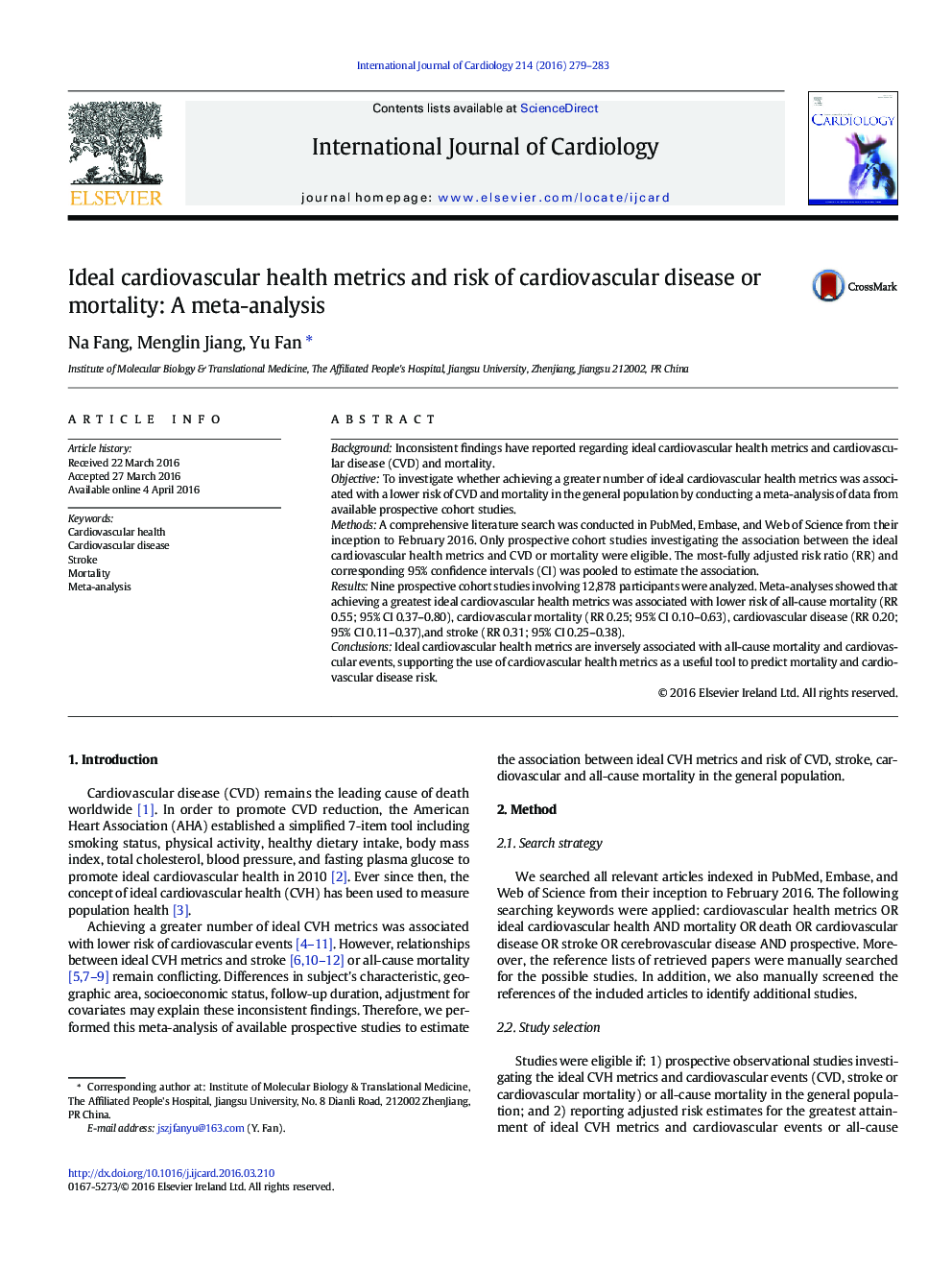| Article ID | Journal | Published Year | Pages | File Type |
|---|---|---|---|---|
| 5964643 | International Journal of Cardiology | 2016 | 5 Pages |
â¢Ideal CVH metrics are inversely associated with cardiovascular or all-cause mortality.â¢Subjects with greatest ideal CVH metrics led to 80% lower risk CVD.â¢Subjects with greatest ideal CVH metrics had 69% lower risk of strokeâ¢The prevalence of ideal CVH was lower in the United States and China.â¢Health promotion policies achieving a greater number of CVH metrics is urgent.
BackgroundInconsistent findings have reported regarding ideal cardiovascular health metrics and cardiovascular disease (CVD) and mortality.ObjectiveTo investigate whether achieving a greater number of ideal cardiovascular health metrics was associated with a lower risk of CVD and mortality in the general population by conducting a meta-analysis of data from available prospective cohort studies.MethodsA comprehensive literature search was conducted in PubMed, Embase, and Web of Science from their inception to February 2016. Only prospective cohort studies investigating the association between the ideal cardiovascular health metrics and CVD or mortality were eligible. The most-fully adjusted risk ratio (RR) and corresponding 95% confidence intervals (CI) was pooled to estimate the association.ResultsNine prospective cohort studies involving 12,878 participants were analyzed. Meta-analyses showed that achieving a greatest ideal cardiovascular health metrics was associated with lower risk of all-cause mortality (RR 0.55; 95% CI 0.37-0.80), cardiovascular mortality (RR 0.25; 95% CI 0.10-0.63), cardiovascular disease (RR 0.20; 95% CI 0.11-0.37),and stroke (RR 0.31; 95% CI 0.25-0.38).ConclusionsIdeal cardiovascular health metrics are inversely associated with all-cause mortality and cardiovascular events, supporting the use of cardiovascular health metrics as a useful tool to predict mortality and cardiovascular disease risk.
